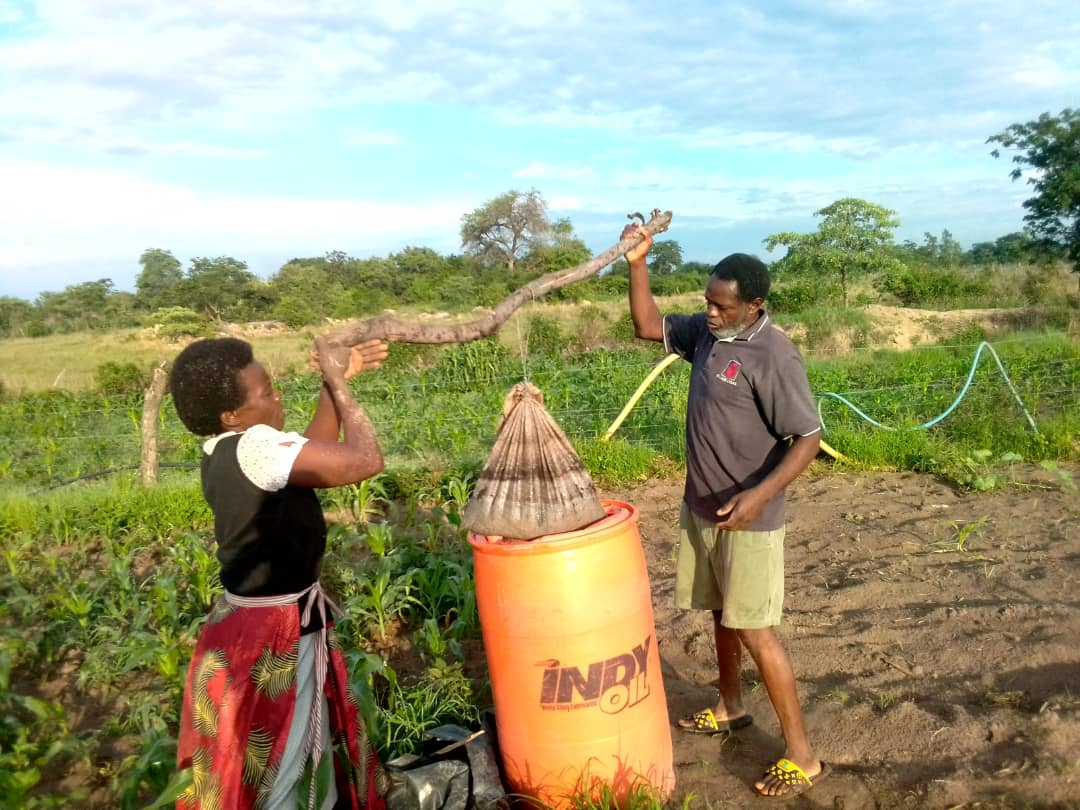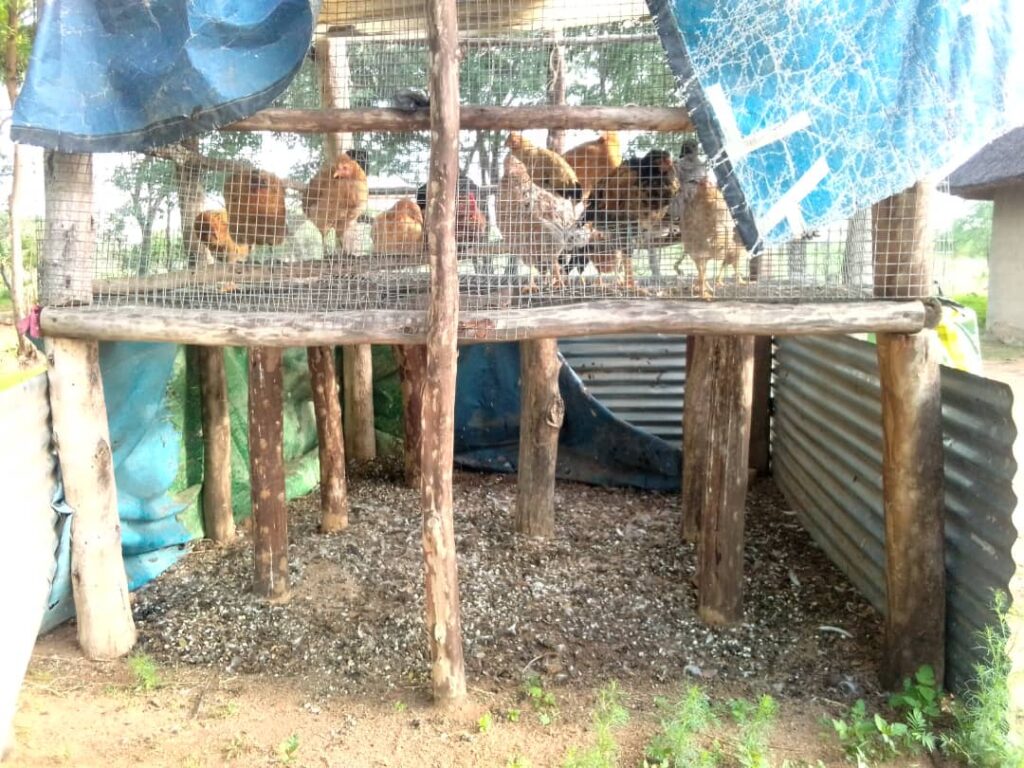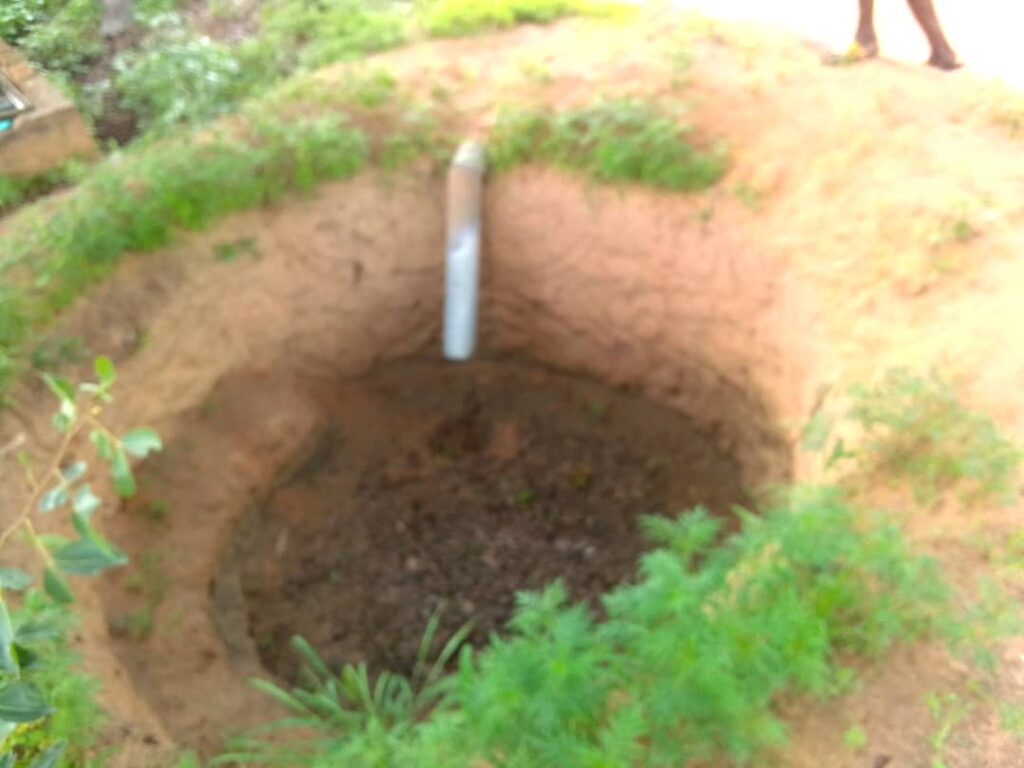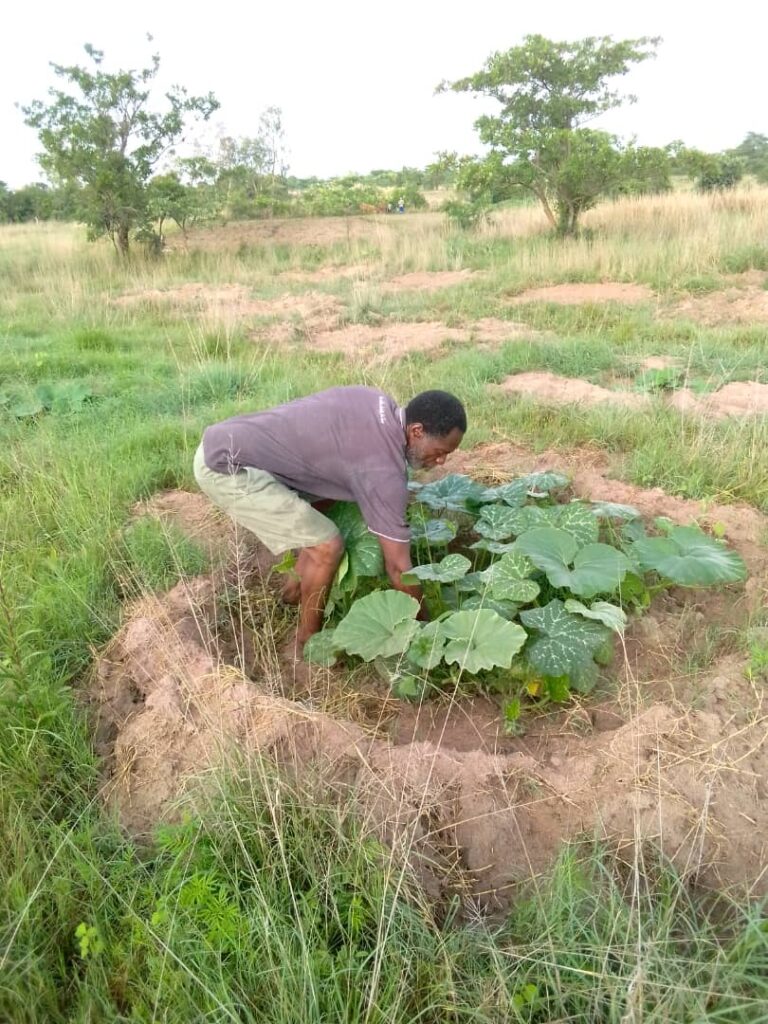
My name is Enia Mandebvu from Northern Cluster Chikwangwadza Smallholder Farmers’ Organisation (SFO) in Mhondoro. I have been a member of ZIMSOFF for some years now. What motivated me to join ZIMSOFF was that l learnt that the type of foods we eat can either kill us or keep us healthy and alive. I used to grow my crops using conventional ways of farming that involved applying fertilisers and chemicals for pest control and weed control. I learnt that no matter how we water our plants and refrigerate our agricultural produce that we would have grown using fertilisers and chemicals for pest control, these chemicals remain in the produce. When we eat the produce we also consume the chemicals and our health will deteriorate in the long run. That is why I moved away from conventional way of farming because I believe most sicknesses and diseases are caused by the food that we eat. Now l do organic farming, which involves a lot of agroecological practices.

I am into horticulture and poultry farming. I use mostly using chicken manure as fertiliser. Before using the chicken manure, l prepare it in two ways: l collect the manure and mix it with forest manure (called murakwani in our local language, shona), then water it for some time until it is ready for use. The other way, l collect chicken (roadrunner) manure and soak it for a period of 7 to 10 days in a 200 litre-drum. Then l take the nutrient rich water from the drum and apply it with different measurements (l dilute it) depending on the stage of growth of the crop and crop type. I experiment a lot to see what works well for the different horticultural crops.

Before l plant my crops, l prepare the land very well. I dig trenches and pits which are 50 to 60 cm deep in which l put crop residues to build the soil fertility. I lay the maize crop residues and groundnuts crop residues or any other crop residue which decomposes fast. I cover the trench with anthill soil first, then add murakwani as top soil. Before planting l water these trenches for 4 to 5 weeks so that the crop residues decompose. I noticed that each time l do this, my soils remain fertile and moist for a long time.
For pest control, I now use friendly homemade natural methods. I use traditional herbs (tree leaves), garlic and chilly, which l crush and mix into a paste. I mix the paste with water and apply as pest control method.
The chickens that l keep l use them to pay for labour. The people work for me in exchange for a chicken(s). I sell some of them to a local canteen that I have contract with to supply chickens. Every 5 months, l select and sell cocks/roosters (about 30 to 45 cocks) depending on their maturity. Prices vary but range from US$3.00 to $9.00
Horticultural produce that I harvest, I supply to 3 neighbouring schools namely Junction SDA Secondary school, Presbyterian High School and Rio Tinto Mhondoro High school. I have contracts to supply these schools. Each school term (about 3 months long), I supply about 10 to 15 buckets of tomatoes per week to each school and sometimes, l supply cabbages too. They like my tomatoes. The quality of my tomatoes has made a name for itself because they stay up to 21 to 27 days before spoiling. Prices do fluctuate at times because of the changes in demand. When tomatoes are in demand a bucket can go up to US$15.00 and cabbages, a US$1.00 per head.

I have diversified into growing butternuts, water melons and have planted 500 plants on an experimental basis. I also grow wheat immediately after maize, sorghum and finger millet (rapoko) harvest only for home consumption. I also grow sweet potatoes (mbambaira), groundnuts and cow peas (nyemba). I grow crops throughout the year because l keep my soil healthy. My land is not that very big. Farming is my passion. I left formal employment to follow my passion.
